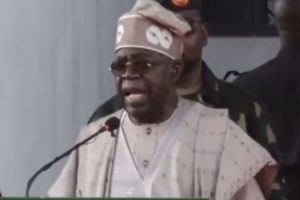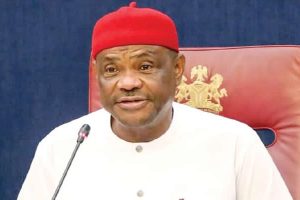
Australia-based Nigerian publisher of 9News Nigeria and CEO of Nine Communications Nigeria Limited, Mr. Obinna Ejianya, has urged President Bola Ahmed Tinubu to restore the fuel subsidy as a necessary measure to alleviate the severe economic hardships faced by Nigerians. In an interview with 9News Nigeria in Abuja, Ejianya emphasized the importance of reducing fuel prices to stimulate the economy and provide relief to citizens grappling with the skyrocketing cost of living, which has risen beyond affordable levels due to the removal of the fuel subsidy.
Ejianya acknowledged the various economic policies being implemented by the Tinubu administration. However, he argued that these measures would be ineffective without addressing the sharp increase in fuel prices, which he described as a critical driver of both the Nigerian and global economies. Neglecting fuel subsidies while pursuing other policies, he said, is akin to “putting the cart before the horse,” and could lead to economic stagnation.
He further explained that the Nigerian economy heavily relies on fuel, with many sectors dependent on it for production. An increase in fuel prices, he emphasised, could have catastrophic consequences for the economy, overshadowing any benefits from other policies. He particularly noted that the sharp rise in fuel costs has a direct negative impact on Nigeria’s GDP per capita, as it reduces the purchasing power of citizens, limits economic productivity, and increases the cost of goods and services. Ejianya used an analogy of farming, stating that policies implemented in an environment of exorbitant fuel costs are like trying to cultivate a farm on dry land without a water source. He stressed that failing to address the fuel subsidy, efforts to improve the economy would invariably yield poor results.
Ejianya also praised the skills and work ethic of Nigerians, emphasizing that they need an enabling environment to enhance productivity. He noted that restoring fuel subsidies would create such an environment, allowing citizens to thrive. His remarks come amid ongoing discussions about the Tinubu administration’s economic policies and the challenges many Nigerians face due to skyrocketing living costs.
In previous statements, Ejianya has consistently advocated for the restoration of fuel subsidies, arguing that they are essential for economic stability and growth in Nigeria. In an article published on Vanguard in May 2024, he urged the government to prioritize reducing fuel prices to stabilize the economy and strengthen the Naira. He emphasized that high fuel costs negatively impact local production and the Gross Domestic Product (GDP), further hurting the GDP per capita and worsening the economic realities for individual Nigerians.
In an investigative report from September 2024, he discussed the adverse effects of fuel subsidy removal on Nigeria’s economy and citizens, highlighting the resultant inflation, skyrocketing fuel prices, and increased hardship.
Ejianya’s call for the restoration of fuel subsidies reflects his commitment to advocating for good governance and the implementation of policies that directly improve the lives of average Nigerians.
Understanding the Fuel Subsidy Removal and Its Consequences
The fuel subsidy removal was implemented with the intention of reducing government expenditure and promoting economic growth. However, the consequences of this decision have been far-reaching and detrimental, particularly for the most vulnerable members of society. The sudden increase in fuel prices has led to a surge in transportation costs, making it more expensive for people to commute to work or school. This, in turn, has negatively impacted their ability to earn a living and access essential services.
Moreover, the rise in fuel prices has also caused a domino effect on the prices of other essential commodities. Food prices have skyrocketed, making it increasingly difficult for families to put meals on the table. The cost of electricity has also increased, putting an additional burden on households already struggling to make ends meet. Overall, the removal of fuel subsidies has had a cascading effect on the cost of living, exacerbating the suffering of poor Nigerian citizens.





